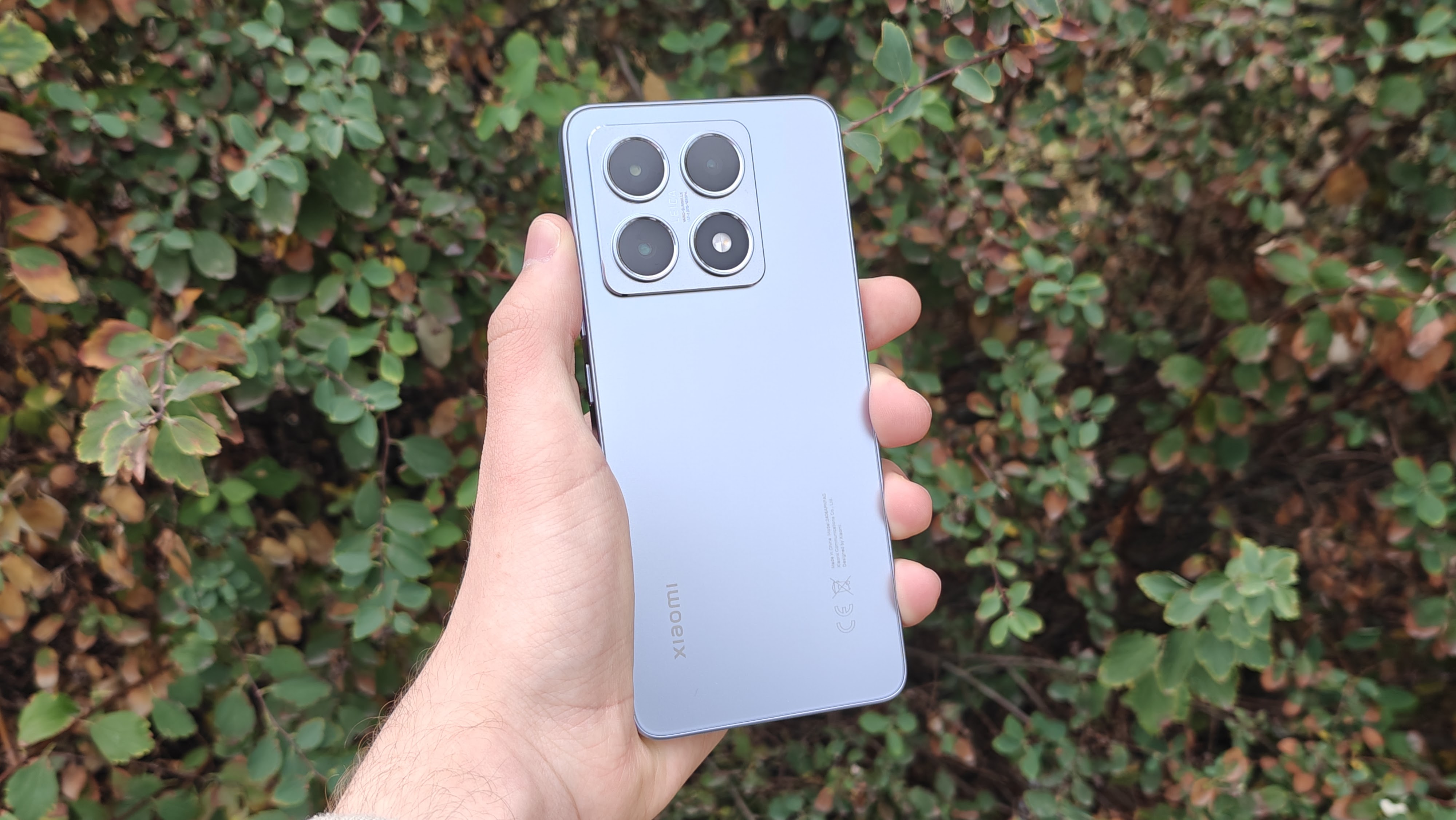TechRadar Verdict
The Xiaomi 14T is definitively a mid-range handset, but one that's hot on the heels of its Pro counterpart. Xiaomi offers a wonderful display, premium design, and reliable performance with the 14T, meaning the phone is especially suited to gaming. Trade-offs are felt in the durability and camera departments – despite being marketed as a camera phone, the photography experience is a mixed bag.
Pros
- +
A truly excellent display
- +
Reliably great performance
- +
Refreshingly sleek design
Cons
- -
Cameras are a mixed bag
- -
Screen scratches easily
Why you can trust TechRadar
Xiaomi 14T: Two-minute review
The Xiaomi 14T offers the design language and beautiful display of a current ultra-premium smartphone in a more affordable package, giving users a simply stunning screen and reliable performance for around half the price of a typical flagship. The compromises, notably in the camera department, are clear, but the 14T's display, battery life, and performance show Xiaomi isn’t just skimping, but making considered choices to deliver excellence in key areas.
The gorgeous 6.67-inch AMOLED display is the star of the show here. Photo and video content looks amazing on this panel, which packs a punch in terms of both contrast and detail. The tall, high-resolution screen makes the lightweight 14T a reliable and portable gaming machine – I found it could sustain demanding games like Call Of Duty: Mobile and Race The Sun with no drops in performance and without overly depleting the battery.
In day-to-day use, performance is snappy across the OS, though the phone can stutter a touch when switching between apps. The impressively large 5000mAh battery keeps the 14T going all day with regular use, and easily into the next with lighter usage; I found it genuinely difficult to run the phone down to 0% over the course of a normal day.
A price tag like this necessarily implies compromises, and Xiaomi has made clear concessions in two areas. The telephoto and ultra-wide cameras, while nice to have, do not live up to the main camera’s standard. And the phone’s premium aesthetics don’t preclude concerns about durability – the front panel picked up a good amount of scratches in the course of normal use during my testing.
Overall, however, Xiaomi has produced a solid mid-range flagship with the 14T. This is a big, responsive, feature-rich phone, and a reminder that the gap between standard and premium smartphones is narrowing.
Xiaomi 14T review: Price and availability
- Not available in the US
- Starts at £549
The Xiaomi 14T starts at £549. As with most Xiaomi phones, it’s very unlikely that the 14T will be released in the US. It comes with 256GB or 512GB of storage and 12GB of RAM.
As a mid-range flagship, the Xiaomi 14T sits next to rivals like the Samsung Galaxy S24 FE, which starts at £649, and the Google Pixel 8a, which starts at £499. The 14T’s starting price of £549 feels appropriate when you factor in the specs sheet and Xiaomi’s weaker brand recognition in Western markets.
Sign up for breaking news, reviews, opinion, top tech deals, and more.
Here's a Xiaomi 14T price guide for the UK and EU.
| Storage | UK price | EU price |
|---|---|---|
| 256GB + 12GB RAM | £549 | €649 |
| 512GB + 12GB RAM | £599 | €699 |
Xiaomi 14T review: Specs
| Dimensions | 160.5mm x 75.1mm x 7.95mm |
| Weight: | 195g |
| Display: | 6.67-inch AMOLED |
| Resolution: | 2712 x 1220 |
| Refresh rate: | Up to 144hz |
| Chipset: | MediaTek Dimensity 8300-Ultra |
| Rear cameras: | 50MP main (23mm, ƒ1.7), 50MP telephoto (50mm, ƒ1.9), 12MP ultra-wide (15mm, ƒ2.2) |
| Front camera: | 32MP |
| Storage: | 256GB, 512GB |
| RAM: | 12GB |
| OS (at launch): | Android 14 w/ HyperOS 1.0.4.0 |
| Battery: | 5000mAh Lithium Polymer |
| Charging: | 67W HyperCharge |
Xiaomi 14T review: Design
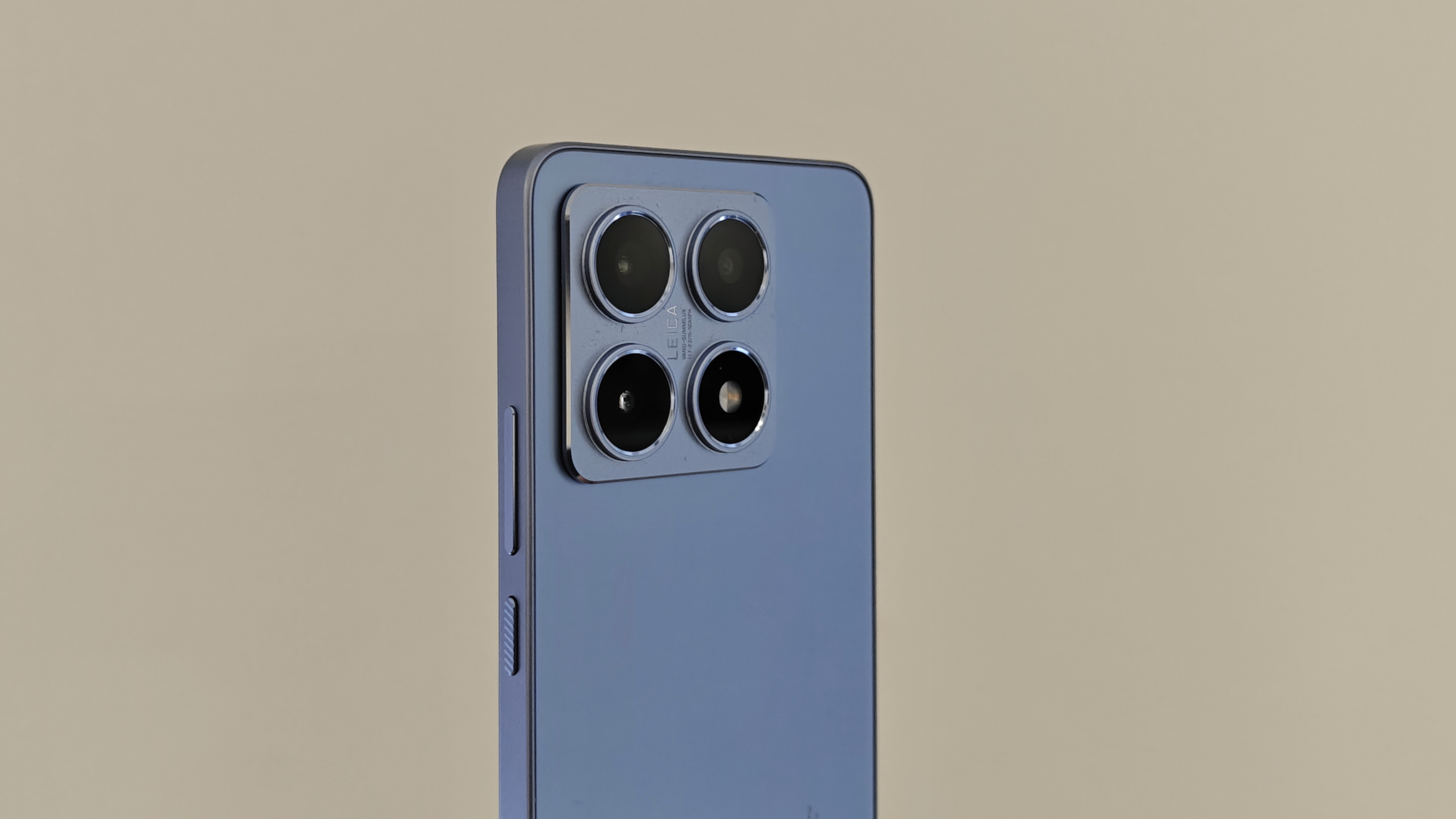
- All-aluminum chassis
- Four-ring camera housing
- Comes in four colors: Titan Gray, Titan Black, Titan Blue, and Lemon Green
The Xiaomi 14T has a blocky aluminum-alloy construction, with squared edges that round ever so slightly into the back panel. It’s lightweight, with just enough heft to allay any feelings of cheapness, and the rounded corners and matte finish on the rear panel make the 14T comfortable to hold in either landscape or portrait for extended periods of use.
Xiaomi calls the specific material used a “metallic aluminum alloy”, which comes in three colors: Titan Gray, Titan Black, and Titan Blue. Xiaomi also offers a variant of the 14T in Lemon Green: the company says this variant uses vegan leather made from 50% bio-based materials, including lemon fiber, with 100% recycled PET in its construction. The unit I tested was the standard Titan Blue model, but I commend Xiaomi for offering a more environmentally conscious option.
The 6.67-inch display and 20:9 aspect ratio from last year’s 13T and 13T Pro are unchanged – this remains an undeniably large phone. The Xiaomi 14T generally feels great to hold, but I can see reachability being an issue for those with smaller hands – you can enable a slightly fiddly gesture to access one-handed mode.
A volume rocker and textured power button are built into the right side of the phone, with a USB-C port and dual-SIM tray along the bottom. A speaker on the bottom edge and the earpiece cutout along the top bezel of the display form a stereo pair for audio, which is serviceable for videos but a bit tinny for music.
As with its predecessor, the Xiaomi 14T features a large camera bump. In contrast to the 13T’s futuristic black camera module, the 14T’s camera housing seems to be made of the same aluminum-alloy as the rest of the phone, and this gives the 14T a refreshingly industrial aesthetic.
The camera bump houses three cameras and a flash that gets its own lens-like ringed frame – initially, this seemed like an effort to make the device seem more premium than it actually is, but with time I’ve come to appreciate the visual symmetry this choice provides.
Design score: 4 / 5
Xiaomi 14T review: Display
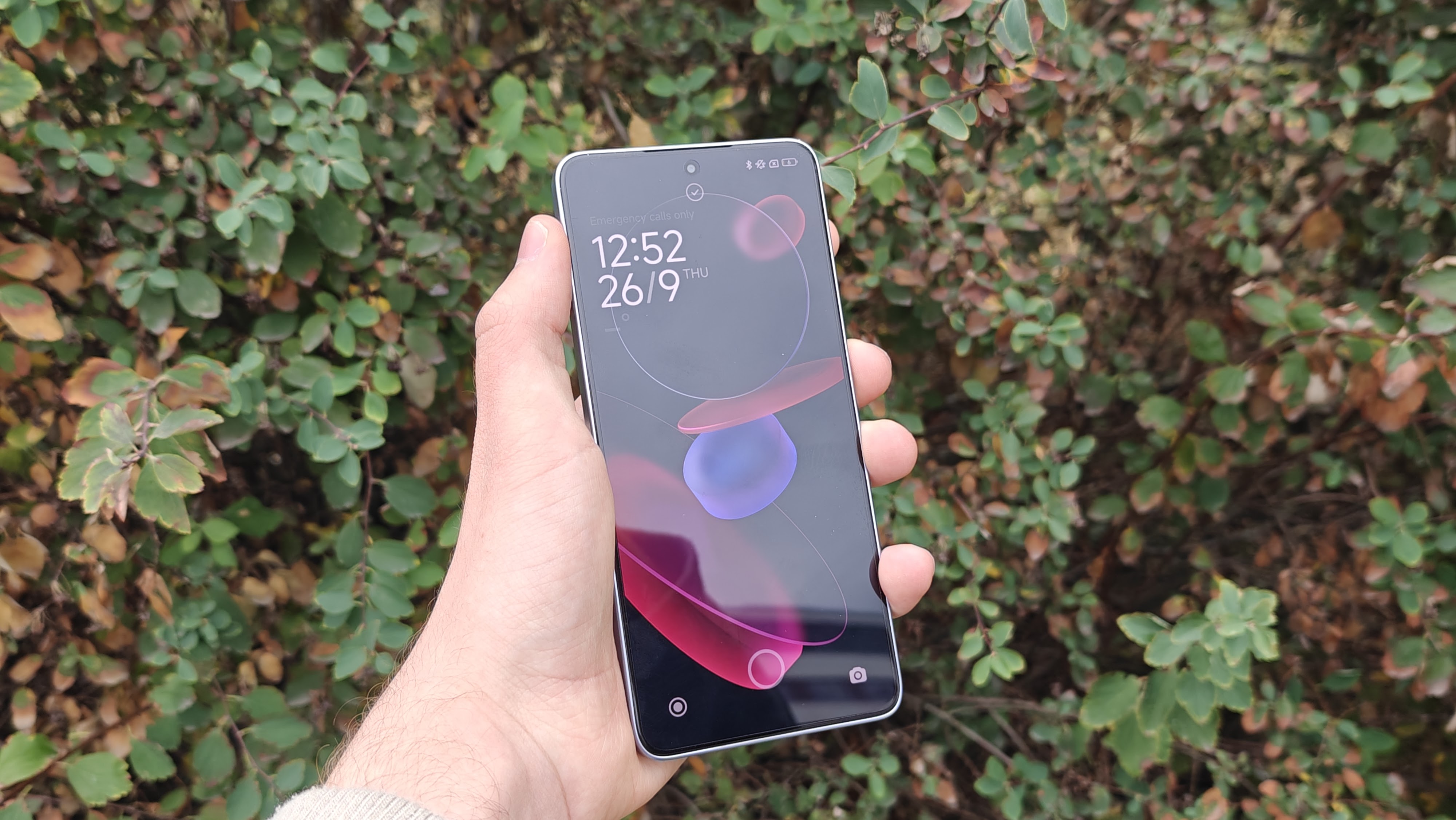
- 6.67-inch AMOLED
- 144hz adaptive refresh rate
- 4,000 nits peak brightness
The 6.67-inch display on the Xiaomi 14T is its best feature and true selling point. It seems to be the same display as on the Xiaomi 13T Pro, but that’s no issue with a phone of this price: as we found in our 13T Pro review, this is a gorgeous AMOLED panel that is consistently bright, sharp, and contrasty in a range of environments. Videos, photos, games, and anything else you can put on this screen all look fantastic. The 20:9 aspect ratio means the punch-hole selfie camera sits right on the edge of 16:9 video content, a considerate piece of design.
With a resolution of 2712 x 1220 and an adaptive refresh rate of up to 144Hz, the 14T’s display is fluid and detailed. The display reaches a peak brightness of 4,000 nits, which is probably unnecessarily bright, but it means you certainly won’t have any issues using it outdoors.
The tall aspect ratio and high resolution make the Xiaomi 14T’s display great for gaming, too – that extra space on either side gives your thumbs a place to sit without obscuring much of the screen’s center. Web browsing, social media, and other day-to-day activities are smooth, with several color profiles and in-depth display settings allowing users to calibrate the look of the 14T’s display to their liking.
An under-display fingerprint scanner offers biometric security for unlocking the phone and creating passkeys.
One area where the display appears to fall down, unfortunately, is durability. I noticed a few clusters of scratches on the front panel in my week or so of regular use. These aren’t noticeable in the vast majority of situations, but it does leave me wondering how well the 14T will hold up over time.
Display score: 4 / 5
Xiaomi 14T review: Software
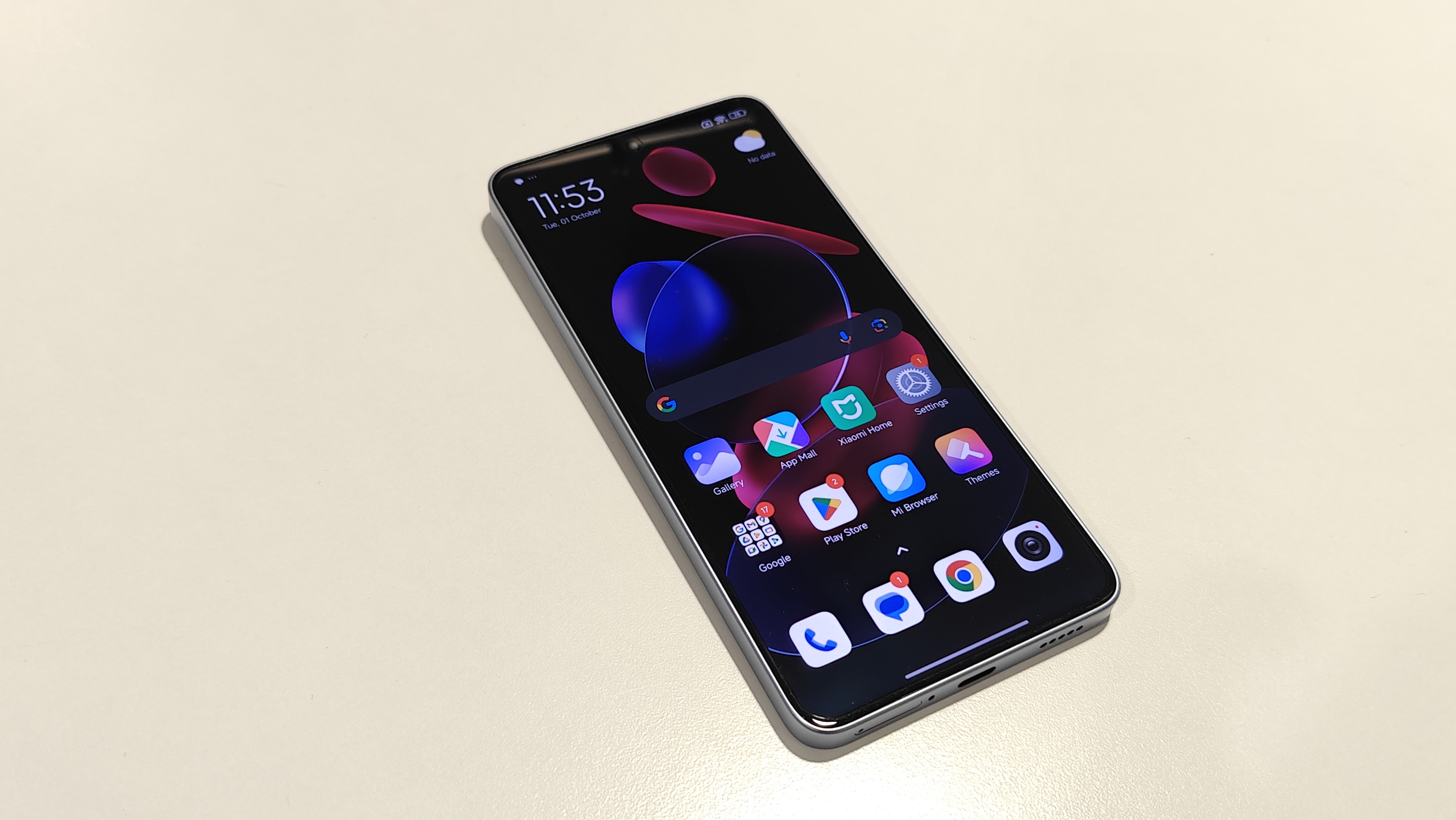
- Android 14 with HyperOS
- Google Gemini out of the box
The Xiaomi 14T ships with Android 14, styled as the company’s proprietary HyperOS user experience. It’s a responsive and uncomplicated implementation of Android that comes with some great customization options.
HyperOS is a slick Android wrapper that keeps the amount of extras to an acceptable level. Some of the inbuilt apps are compatible with Xiaomi’s account system but they’re far from essential – Xiaomi’s App Mall and Mi Browser sit alongside the Google Play Store and Chrome on the home page, and it's likely most users will head straight for Google’s platforms. The Xiaomi 14T also comes with Google Gemini pre-installed, accessible via a half-second press of the power button, though I didn’t find much use for these AI features during testing.
There is some pre-installed bloatware, which robs the 14T of some of its premium sheen, but for the most part these can be easily dispatched or consigned to the app drawer. As a deployment of Android 14, HyperOS is smooth and rich in customization features, and Xiaomi’s own animated wallpapers and overall aesthetic choices add a sense of flair and excitement to using the 14T.
Software score: 4 / 5
Xiaomi 14T review: Cameras
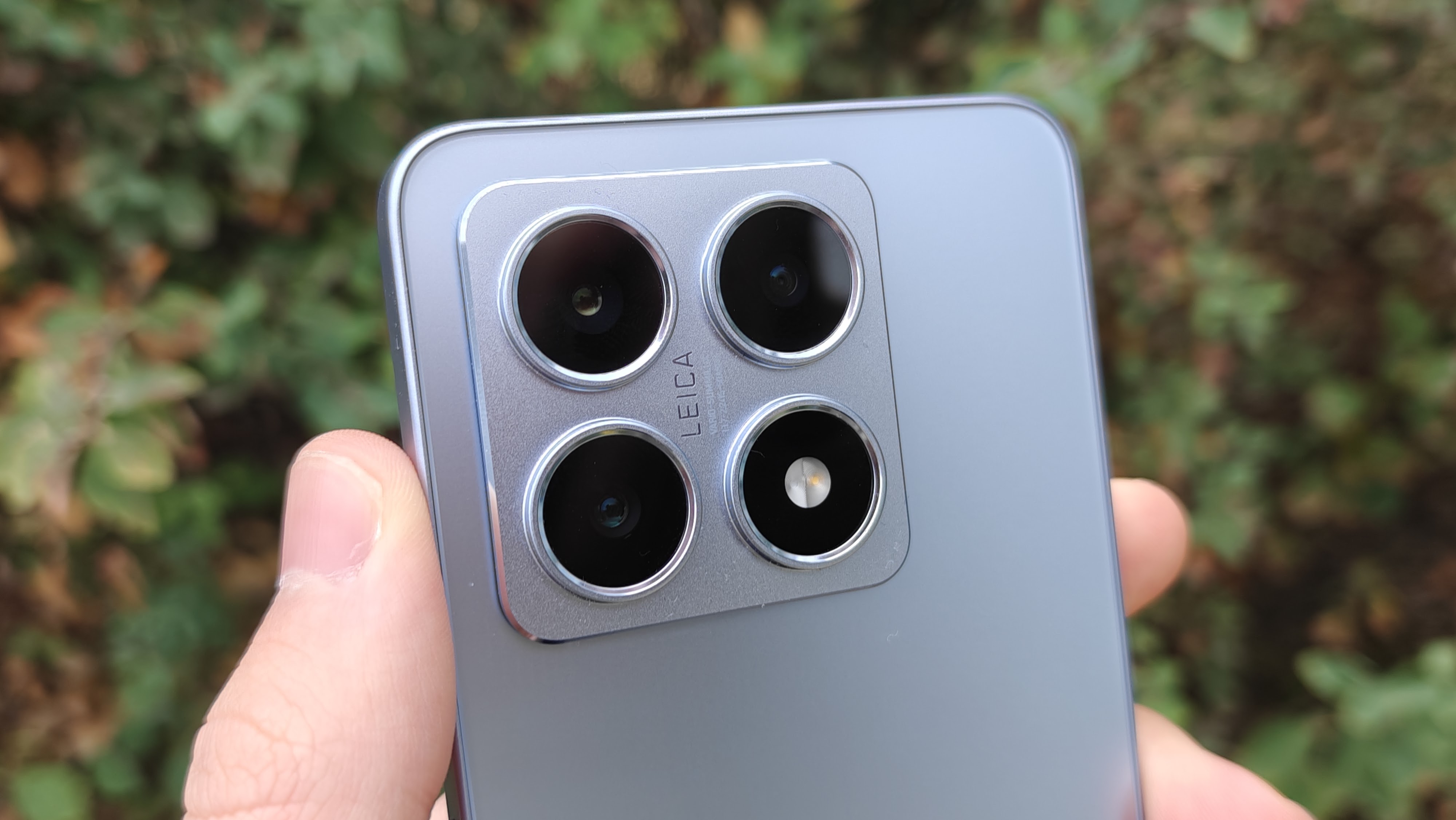
- 50MP main camera
- 50MP telephoto with 4x optical zoom
- 12MP ultra-wide
Xiaomi has put photography at the forefront of the marketing push for the 14T and 14T Pro, but I found the cameras to be a mixed bag. The main camera takes great photos – pleasantly colorful and decently detailed with especially great results in bright conditions – but zooming in with the telephoto camera or out with the ultra-wide lens produces results of varying quality.
As with last year’s model, Xiaomi partnered with Leica to develop the 14T’s camera module. The main 50MP wide camera produces vibrant, contrasty photos even in overcast conditions, but can struggle with finer details. The telephoto camera gives the 14T a 4x optical zoom and 20x digital zoom, controlled by an intuitive scroll wheel. Colors and contrast feel contiguous across the main and telephoto cameras.
However, taking photos at higher zoom levels seems to trigger an aggressive post-processing routine, which returns an overly smoothed and brightened image. The camera app’s settings don’t seem to have any options to curb this processing, meaning long-range photos are more limited in their detail than images taken at lower zoom levels and subsequently cropped in on. The ultra-wide camera is also just okay, offering a useful 0.6x magnification but producing a much warmer and less detailed picture.
The camera app is brimming with settings and options that give you a satisfying amount of control over the final image. Leica lends its name to two toggleable ‘styles', Leica Authentic and Leica Vibrant, which respectively produce a more grounded or more colorful image; I preferred the contrast and saturation of Leica Vibrant. There’s also a HDR option (on Auto by default), a range of tasteful filters, and a Pro mode stacked with controls. An impressive night mode delivers photos that feel both visible and realistic.
As for video, the 14T can record 1080p footage at 60fps or 4K at 30fps. Videos capture a lot of detail, but come out a little over-sharpened. There’s a Movie mode that applies a depth-of-field effect to people in the frame, similar to Apple’s Cinematic Mode, and a Director mode with a camcorder-style interface. I noticed the 14T getting a little warm when using the camera for an extended period of time, but not uncomfortably so.
Some of the 14T’s photography limitations are explained by its pricing, but even within this price range there are higher-resolution sensors and more reliable image processing pipelines. Still, the 14T is very much capable of producing great photos, and the control the software offers allows for some real creativity.
Cameras score: 3.5 / 5
Camera samples





Xiaomi 14T review: Performance
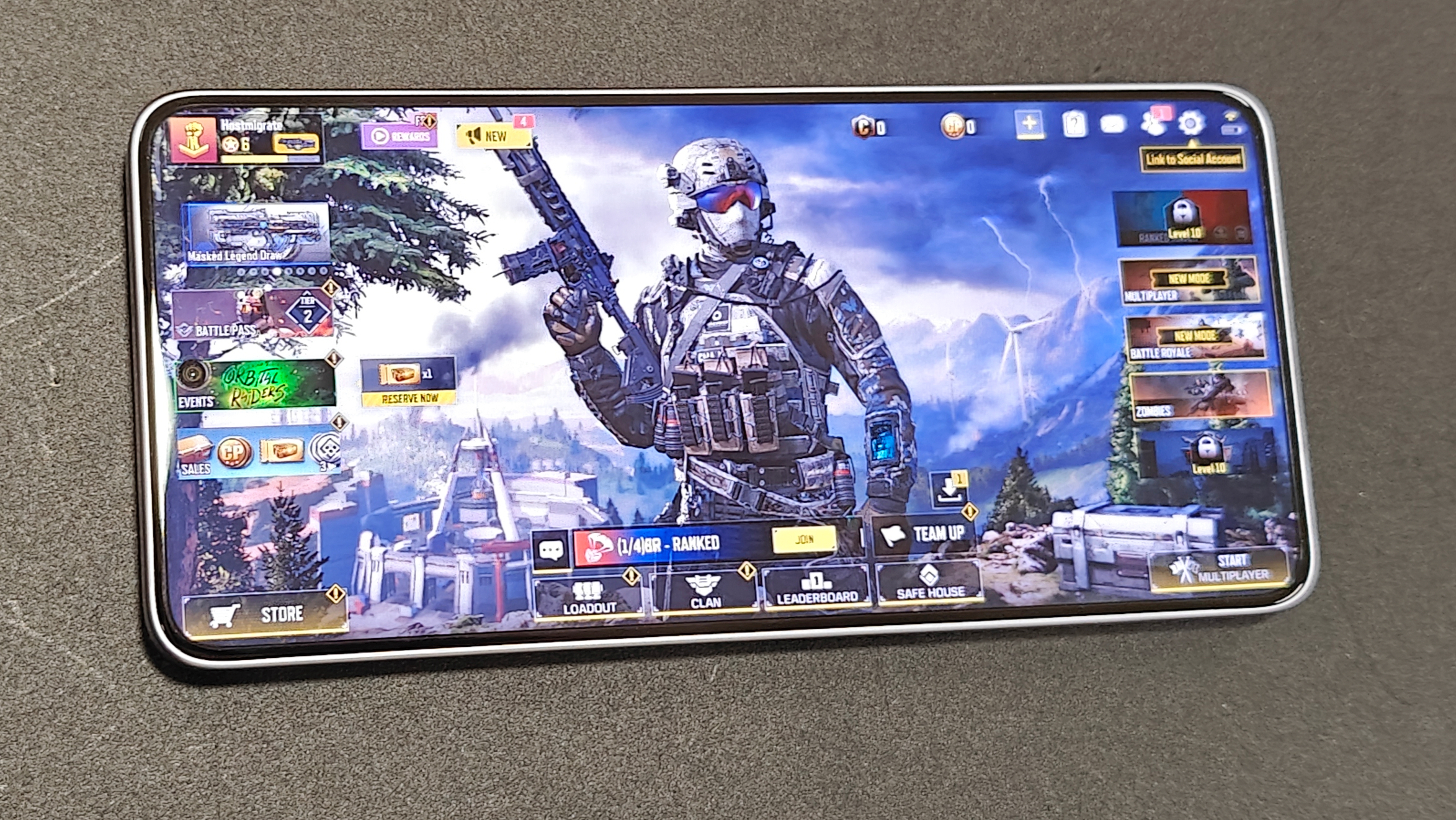
- MediaTek Dimensity 8300-Ultra chipset
- GPU: Arm Mali-G615 MC6
- 12GB of RAM
In typical use, the Xiaomi 14T is snappy and responsive, handling web browsing, social media, and system apps with ease. The MediaTek Dimensity 8300-Ultra chipset that powers the 14T comprises an octa-core CPU and dual-core GPU, enabling the 14T to power through demanding games like Call of Duty Mobile and PUBG with ease.
In fact, it’s kind of surprising that Xiaomi has pushed the 14T as a camera phone when it’s clearly so good for gaming. This reliably strong performance works in tandem with the unit’s relative light weight and excellent display to offer a portable, powerful mobile gaming platform. This feels like the 14T’s secret power, and I’m confused as to why the company has made next to no noise about this aspect of the phone, instead focusing almost exclusively on photography.
The phone can get a bit warm during extended gaming sessions, but not unbearably so, and battery life takes a noticeable hit when driving multiple demanding apps. I did experience the occasional stutter when switching between apps, too. However, the 14T’s performance remains impressive overall, especially considering its price bracket.
Performance score: 4 / 5
Xiaomi 14T review: Battery
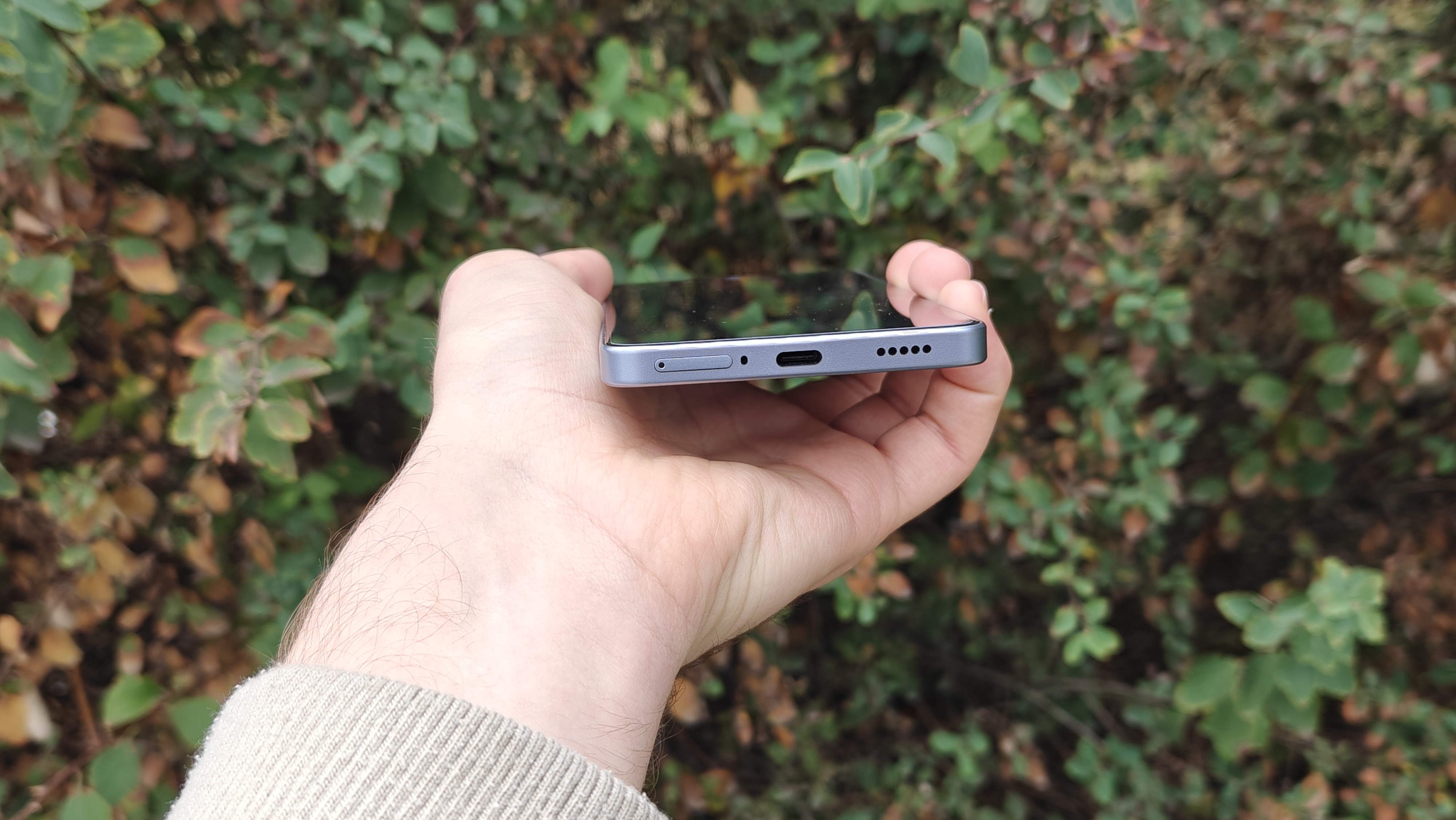
- 5,000mAh battery
- All-day battery life
- 67W wired charging, no wireless charging
As seems to be the case for Xiaomi phones, the 14T can easily sustain a day of use on a single charge. It’s equipped with an impressively massive 5,000mAh lithium-polymer battery, and it shows. I actually struggled to drain the battery in the course of a normal day, and standby times are truly impressive.
The Xiaomi 14T supports 67W wired charging, which is certainly fast, but far from on a par with the 120W speeds the 14 Pro can handle. Somewhat annoyingly, the base 14T misses out on the 14T Pro’s 50W wireless charging upgrade, and in fact doesn’t support wireless charging at all. That’s not a huge concern given the fast wired charging speeds and reliably long battery life, but it’s a little disappointing nonetheless.
You get a USB-A to USB-C cable in the box, but not a wall plug. I tested the phone’s charging speed with a Huawei 40W power adapter and found it charged reasonably quickly. I’ll update this review when I’m able to test the 14T’s maximum charging speed.
Battery score: 3.5 / 5
Should you buy the Xiaomi 14T?
| Attributes | Notes | Rating |
|---|---|---|
| Value | As a mid-range flagship, the Xiaomi 14T holds up well price-wise against its contemporaries; it’s not a bargain, but not overpriced either. | 3.5 / 5 |
| Design | The Xiaomi 14T is modern, modest, metal – this is a refreshing design that could easily sit next to more premium units. | 4 / 5 |
| Display | The high-resolution, high-refresh-rate panel on the 14T takes anything you throw at it and makes it look beautiful – it’s let down only by durability. | 4 / 5 |
| Software | HyperOS is responsive and brings some seriously cool customization options – Gemini is also fully integrated. | 4 / 5 |
| Camera | The main camera takes fantastic photos, but the telephoto and ultra-wide cameras are unreliable. Night performance is great, however. | 3 / 5 |
| Performance | The Xiaomi 14T handled demanding apps and games with gusto, though you may experience occasional lag when switching between tasks. | 4 / 5 |
| Battery | Huge capacity, fast wired charging, and all-day battery life – only a lack of wireless charging lets the 14T down. | 3.5 / 5 |
Buy if...
You’re a mobile gamer
The Xiaomi 14T has all the components of a great gaming phone – its high-resolution display, long battery life and reliably fast performance make it ideal for modern titles.
You want a long and reliable battery life
With an immense capacity of 5,000mAh, the Xiaomi 14T confidently boasts all-day battery life. It’s something of a challenge to bring the battery from 100% down to 0% in the span of a normal day.
You want premium aesthetics
The Xiaomi 14T's visage is reminiscent of its more premium contemporaries – the aluminum-alloy construction and moderate curves make this phone both beautiful and ergonomic.
You want a cost-effective all-rounder
The Xiaomi 14T is a strong reminder that mid-range handsets are inching ever closer to pro standards, and while I wouldn’t call it cheap, it’s certainly more wallet-friendly than a premium flagship.
Don't buy if...
You need something rugged
The Xiaomi 14T may have a premium look, but it’s clearly not built to the same durability standards as some of its peers. The display, while beautiful, picks up scratches easily.
You want the very best cameras
The Xiaomi 14T’s 50MP main camera takes reliably great photos, but the 50MP telephoto and 12MP ultra-wide cameras leave something to be desired. It’s a shame, too, because the phone comes with a comprehensive array of camera settings and photography controls.
Xiaomi 14T review: also consider
The latest phone in Samsung’s long-running line of cheaper FE flagships, the S24 FE features a 6.7-inch 120hz display and Samsung’s iconic triple camera system.
Read our hands-on Samsung Galaxy S24 SE review
The cheapest Pixel handset is a great value buy, with Google’s own Tensor G3 chipset and a massive 4,492mAh battery.
Read our Google Pixel 8a review
Taking one or two steps up the price ladder, we find Apple’s latest flagship. The iPhone 16 is a clear choice for photographers with its new Camera Control button.
Read our iPhone 16 review
How I tested the Xiaomi 14T
- Review period: One week
- Testing included: Everyday use: social media, web browsing, photography and video recording, gaming, calls and messages, music playback, and charging tests
My testing of the Xiaomi 14T included a number of specific usage tests as well as everyday use over the course of about one week. The model reviewed had 512GB of storage and 12GB of RAM in the Titan Blue color option.
I put the Xiaomi 14T through its paces with games like PUBG, Call of Duty: Mobile, and Race the Sun, streamed video with YouTube and music with Spotify, and scrolled through Instagram and Google Chrome. I went out to take photos with all three cameras in a variety of conditions. I then applied my knowledge of smartphone specs and journalistic training to assess the qualities and overall value proposition of the Xiaomi 14T.
For more on our smartphone testing process, check out our guide to how we test.
First reviewed September 2024

Jamie is a Mobile Computing Staff Writer for TechRadar, responsible for covering phones and tablets. A lifelong tech-obsessive, Jamie began his writing career as a music blogger before studying journalism at Goldsmiths College, and joined TechRadar in 2024. He thinks the iPhone 5S is the greatest phone of all time, but is currently an Android user.
As well as reporting on the latest in mobile hardware, software, and industry developments, Jamie specialises in features and long-form pieces that dive into the latest phone and tablet trends. He can also be found writing for the site's Audio and Streaming sections from time to time, or behind the decks as a DJ at local venues around London.
